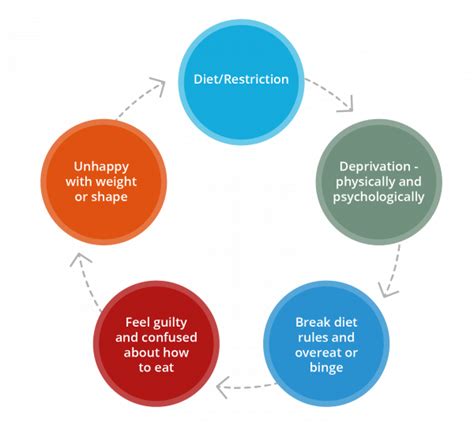
Millennials, often blamed for “destroying” established industries, argue they are, in fact, reshaping them for the better by prioritizing innovation, sustainability, and ethical practices. Frustrated by outdated business models and a lack of responsiveness to modern values, many millennials are actively working to transform sectors ranging from finance and fashion to food and real estate. They aim to create industries that are more inclusive, environmentally conscious, and technologically advanced.
Millennials are actively challenging the status quo across numerous sectors, driven by a desire to align their values with their economic activities. A significant factor driving this change is the disillusionment with traditional corporate structures and a perceived lack of ethical considerations in many established industries. They are using technology, entrepreneurial ventures, and social media advocacy to push for systemic changes. According to the original Yahoo Lifestyle article, the motivation extends beyond mere profit; it includes a commitment to building a better future.
Disrupting Traditional Finance
The finance industry, often criticized for its opacity and lack of accessibility, is one area where millennials are making significant inroads. Fintech startups, many founded and led by millennials, are focused on democratizing financial services by offering user-friendly platforms for investing, lending, and managing personal finances. These platforms often leverage technology to reduce fees, increase transparency, and provide access to financial tools for a wider range of individuals.
“We saw a need for financial products that were more aligned with the values of younger generations,” said one millennial entrepreneur quoted in the Yahoo article. “They want to invest in companies that are making a positive impact, and they want to do it in a way that is easy to understand and accessible.”
The rise of cryptocurrency and blockchain technology, while not exclusively a millennial phenomenon, has been heavily influenced by this generation’s tech-savviness and openness to new ideas. Millennials are actively involved in developing and promoting decentralized finance (DeFi) solutions that aim to disrupt traditional banking systems by eliminating intermediaries and increasing financial inclusion. This also includes pressuring established financial institutions to adopt sustainable investment practices and divest from fossil fuels.
Reimagining the Fashion Industry
The fashion industry, notorious for its environmental impact and exploitative labor practices, is another area ripe for millennial-led transformation. Driven by a growing awareness of the ethical and environmental costs of fast fashion, millennials are increasingly demanding sustainable and ethically produced clothing. This demand has fueled the growth of sustainable fashion brands that prioritize eco-friendly materials, fair labor practices, and transparent supply chains.
Millennial designers and entrepreneurs are also leveraging technology to create innovative solutions, such as virtual try-on apps, online marketplaces for secondhand clothing, and platforms that connect consumers with local artisans. These initiatives aim to reduce waste, promote circularity, and support ethical production. The “buy less, buy better” philosophy is gaining traction among millennial consumers, who are increasingly willing to invest in high-quality, durable clothing that is made to last.
According to the Yahoo article, this shift in consumer behavior is forcing traditional fashion brands to re-evaluate their business models and adopt more sustainable practices. Some established brands are responding by incorporating recycled materials into their products, improving their supply chain transparency, and investing in sustainable manufacturing technologies. However, many millennials remain skeptical of these efforts, viewing them as superficial attempts to greenwash their image.
Redefining the Food Industry
The food industry is undergoing a similar transformation, driven by millennials’ growing concerns about health, sustainability, and animal welfare. They are increasingly seeking out organic, locally sourced, and plant-based foods, and are demanding greater transparency in food production and labeling. This demand has fueled the growth of farmers’ markets, community-supported agriculture (CSA) programs, and organic food retailers.
Millennial entrepreneurs are also developing innovative food technologies that aim to address some of the food industry’s biggest challenges, such as food waste, unsustainable farming practices, and the environmental impact of meat production. These technologies include vertical farming, precision agriculture, and alternative protein sources, such as plant-based meat and cultured meat.
The rise of food delivery apps and online grocery services has also been heavily influenced by millennial preferences for convenience and accessibility. However, millennials are also increasingly aware of the environmental and social costs of these services, such as the plastic waste generated by packaging and the exploitation of delivery workers. As a result, they are demanding more sustainable and ethical delivery options.
Transforming the Real Estate Market
The real estate market, traditionally slow to adopt new technologies and cater to changing lifestyles, is also being transformed by millennials. They are increasingly seeking out urban living, walkable neighborhoods, and sustainable housing options. This demand has fueled the growth of co-living spaces, micro-apartments, and mixed-use developments that prioritize community and sustainability.
Millennial developers are also leveraging technology to create smarter, more efficient buildings that are equipped with features such as smart thermostats, energy-efficient appliances, and solar panels. They are also using data analytics to optimize building performance and reduce energy consumption. The focus is on creating living spaces that are not only comfortable and convenient but also environmentally responsible.
The rise of remote work, accelerated by the COVID-19 pandemic, has further shifted millennial preferences towards smaller cities and suburban areas that offer a better quality of life and more affordable housing options. This trend is forcing real estate developers to adapt to changing demands and create communities that cater to the needs of remote workers.
The Power of Social Media and Advocacy
Social media has played a crucial role in empowering millennials to advocate for change and hold corporations accountable. Platforms like Instagram, Twitter, and TikTok have become powerful tools for raising awareness about social and environmental issues, organizing protests and boycotts, and amplifying the voices of marginalized communities.
Millennials are using social media to expose unethical business practices, demand greater transparency, and pressure corporations to adopt more sustainable and ethical policies. They are also using social media to support businesses that align with their values and to share information about sustainable products and services.
The power of social media to influence consumer behavior is undeniable, and millennials are increasingly using it to drive positive change in the business world. According to the Yahoo article, this generation is not afraid to use their voice and their purchasing power to demand a better future.
Challenging Traditional Work Culture
Beyond specific industries, millennials are also challenging traditional work culture. They prioritize work-life balance, flexible work arrangements, and opportunities for professional development. They are less likely to stay in jobs that they find unfulfilling or that do not align with their values. This has led to a shift in employer expectations, with companies increasingly offering benefits such as flexible work hours, remote work options, and paid parental leave in order to attract and retain millennial talent.
Millennials are also more likely to value collaboration and teamwork, and they are demanding more inclusive and diverse workplaces. They are actively working to create work environments that are welcoming and supportive of employees from all backgrounds. This includes advocating for policies that promote gender equality, racial equity, and LGBTQ+ inclusion.
The rise of the gig economy has also been heavily influenced by millennial preferences for flexibility and autonomy. While the gig economy offers opportunities for independent work and entrepreneurship, it also raises concerns about worker rights and benefits. Millennials are actively working to improve the working conditions of gig workers and to ensure that they have access to fair wages, healthcare, and other essential benefits.
Beyond Destruction: Building a Better Future
While the narrative of millennials “destroying” industries persists, a closer examination reveals that they are actually working to rebuild them in a way that is more sustainable, ethical, and aligned with their values. They are leveraging technology, entrepreneurship, and social media to drive positive change across a wide range of sectors.
Their efforts are not without challenges. They face resistance from entrenched interests, skepticism from older generations, and the complexities of navigating a rapidly changing world. However, their determination to create a better future is undeniable.
The Yahoo article highlights numerous examples of millennials who are actively working to transform industries from the inside out. They are not simply complaining about the problems; they are actively seeking solutions. They are not just destroying; they are building.
The Future of Industries: Shaped by Millennial Values
The future of many industries will likely be shaped by the values and priorities of millennials. As they continue to gain influence in the workforce and as consumers, their demands for sustainability, ethical practices, and social responsibility will only grow stronger. Companies that fail to adapt to these changing demands will likely struggle to remain competitive.
The transition to a more sustainable and equitable economy will not be easy, but millennials are playing a crucial role in driving this change. They are not just destroying; they are creating a better future for themselves and for generations to come. Their approach may involve disrupting established norms, but ultimately, their goal is to build industries that are more aligned with the needs and values of the 21st century.
The impact of millennials extends beyond the specific industries they are actively disrupting. Their influence is also felt in the broader cultural landscape, where they are shaping attitudes towards issues such as climate change, social justice, and economic inequality. Their willingness to challenge the status quo and advocate for change is inspiring others to take action and to demand a better world.
Moving Beyond Stereotypes
It’s crucial to move beyond simplistic stereotypes and recognize the complex and multifaceted role that millennials are playing in shaping the future of industries. They are not a monolithic group, and their motivations and priorities vary widely. However, they share a common desire to create a world that is more sustainable, equitable, and just.
By focusing on their positive contributions and amplifying their voices, we can help to create a more nuanced and accurate understanding of their impact on the world. They are not just destroying; they are building a better future for all. Their innovative solutions, entrepreneurial spirit, and unwavering commitment to their values are essential for addressing the challenges of the 21st century. Conclusion
Millennials aren’t just tearing down; they’re strategically rebuilding. Their focus on sustainability, ethics, and technological integration is reshaping industries in profound ways, paving the way for a future where business aligns with broader societal values. This transformation, while challenging, is essential for creating a more sustainable, equitable, and innovative world. The millennial generation is not simply destroying the old; they are actively constructing a new and improved future for all. Frequently Asked Questions (FAQs)
1. Why are millennials often accused of “destroying” industries?
Millennials are often accused of “destroying” industries because their preferences and values differ significantly from those of previous generations. They prioritize experiences over material possessions, are more likely to support sustainable and ethical businesses, and are less loyal to traditional brands. This shift in consumer behavior has disrupted established business models and forced companies to adapt or risk becoming obsolete. Their inclination towards innovation and technology often challenges the status quo, leading to disruption in sectors that have been slow to evolve. The rise of the gig economy and freelance work, also heavily influenced by millennials, has challenged traditional employment structures, contributing to the perception of industry destruction.
2. What specific industries are millennials actively transforming, and how?
Millennials are actively transforming several industries, including:
-
Finance: Through fintech startups that offer user-friendly platforms for investing, lending, and managing finances, increasing accessibility and transparency. The rise of cryptocurrency and decentralized finance (DeFi) also challenges traditional banking systems.
-
Fashion: By demanding sustainable and ethically produced clothing, supporting brands that prioritize eco-friendly materials, fair labor practices, and transparent supply chains. The promotion of secondhand clothing and virtual try-on apps further reduces waste and promotes circularity.
-
Food: By seeking out organic, locally sourced, and plant-based foods, demanding greater transparency in food production and labeling, and supporting innovative food technologies like vertical farming and alternative protein sources.
-
Real Estate: By preferring urban living, walkable neighborhoods, and sustainable housing options, driving the growth of co-living spaces, micro-apartments, and smart, energy-efficient buildings. The rise of remote work has also shifted preferences towards smaller cities and suburban areas.
3. How is technology being used by millennials to reshape industries?
Millennials are leveraging technology in numerous ways to reshape industries:
- Fintech Platforms: Creating user-friendly platforms for investing, lending, and managing personal finances, making financial services more accessible.
- E-commerce and Online Marketplaces: Facilitating the sale of sustainable and ethically produced goods, connecting consumers with local artisans, and promoting secondhand clothing.
- Food Technology: Developing innovative solutions such as vertical farming, precision agriculture, and alternative protein sources to address food waste, unsustainable farming practices, and the environmental impact of meat production.
- Smart Buildings and Data Analytics: Creating smarter, more efficient buildings with features such as smart thermostats, energy-efficient appliances, and solar panels, and using data analytics to optimize building performance and reduce energy consumption.
- Social Media: Raising awareness about social and environmental issues, organizing protests and boycotts, and amplifying the voices of marginalized communities, holding corporations accountable and driving positive change.
4. What role does sustainability play in millennials’ reshaping of industries?
Sustainability is a central driving force behind millennials’ efforts to reshape industries. They are deeply concerned about the environmental impact of traditional business practices and are actively seeking out sustainable alternatives. This includes:
- Demanding Eco-Friendly Products: Supporting brands that use recycled materials, reduce waste, and minimize their carbon footprint.
- Promoting Sustainable Practices: Advocating for policies that promote sustainable agriculture, renewable energy, and responsible resource management.
- Investing in Green Technologies: Supporting companies that are developing and implementing innovative technologies to reduce environmental impact.
- Reducing Consumption: Embracing a “buy less, buy better” philosophy and prioritizing durable, high-quality products over fast fashion and disposable goods.
- Supporting Circular Economy: Actively participating in reuse, repair, and recycling programs to reduce waste and promote circularity.
5. How are millennials challenging traditional work culture, and what impact is this having?
Millennials are challenging traditional work culture by prioritizing work-life balance, flexible work arrangements, and opportunities for professional development. They are less likely to stay in jobs that they find unfulfilling or that do not align with their values. This has led to:
- Increased Demand for Flexible Work: Companies are increasingly offering benefits such as flexible work hours, remote work options, and paid parental leave to attract and retain millennial talent.
- Emphasis on Collaboration and Teamwork: Millennials value collaboration and teamwork and are demanding more inclusive and diverse workplaces.
- Rise of the Gig Economy: The gig economy has been heavily influenced by millennial preferences for flexibility and autonomy, leading to a shift in traditional employment structures.
- Focus on Purpose and Meaning: Millennials are seeking work that is meaningful and contributes to a greater purpose, leading companies to emphasize their social and environmental impact.
- Push for Inclusivity and Diversity: Actively working to create work environments that are welcoming and supportive of employees from all backgrounds, advocating for policies that promote gender equality, racial equity, and LGBTQ+ inclusion.
These changes are having a significant impact on the business world, forcing companies to adapt to the changing needs and preferences of the millennial generation.









